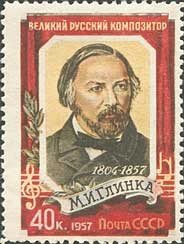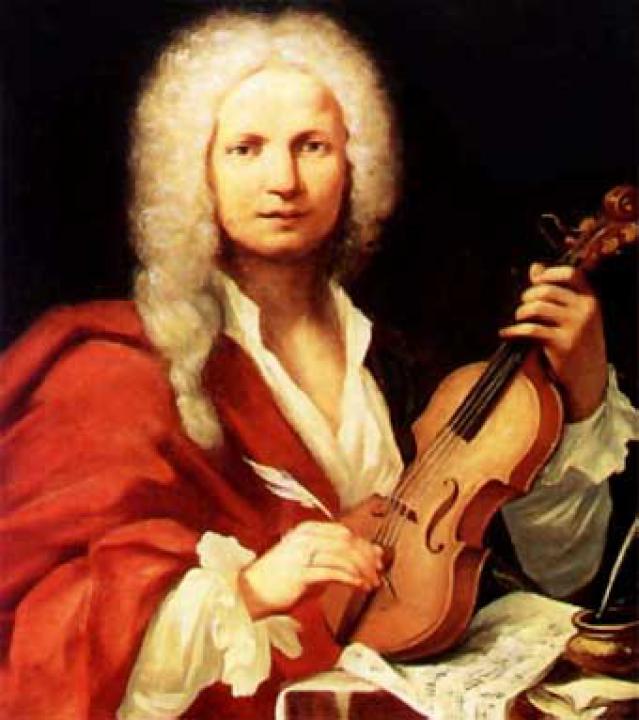Stamp: Death Centenary of M.I.Glinka (Soviet Union, USSR 1957)
Death Centenary of M.I.Glinka (Soviet Union, USSR 1957)
23 February (Soviet Union, USSR ) within release Death Centenary of M.I.Glinka goes into circulation Stamp Death Centenary of M.I.Glinka face value 40 Russian kopek
| Stamp Death Centenary of M.I.Glinka in catalogues | |
|---|---|
| Michel: | Mi:SU 1916 |
Stamp is square format.
Mikhail Ivanovich Glinka (Russian: Михаи́л Ива́нович Гли́нка) (June 1 [O.S. May 20] 1804 – February 15 [O.S. February 3] 1857), was the first Russian composer to gain wide recognition within his own country, and is often regarded as the father of Russian classical music. Glinka's compositions were an important influence on future Russian composers, notably the members of The Five, who took Glinka's lead and produced a distinctive Russian style of music.Also in the issue Death Centenary of M.I.Glinka:
- Stamp - Death Centenary of M.I.Glinka face value 40;
- Stamp - Death Centenary of M.I.Glinka. face value 1;
- Stamp - Death Centenary of M.I. Glinka (1804-1857) face value 40;
- Stamp - Death Centenary of M.I. Glinka (1804-1857) face value 1;
Stamp Death Centenary of M.I.Glinka it reflects the thematic directions:
Music is an art form and cultural activity whose medium is sound organized in time. The common elements of music are pitch (which governs melody and harmony), rhythm (and its associated concepts tempo, meter, and articulation), dynamics (loudness and softness), and the sonic qualities of timbre and texture (which are sometimes termed the "color" of a musical sound). Different styles or types of music may emphasize, de-emphasize or omit some of these elements. Music is performed with a vast range of instruments and vocal techniques ranging from singing to rapping; there are solely instrumental pieces, solely vocal pieces (such as songs without instrumental accompaniment) and pieces that combine singing and instruments. The word derives from Greek μουσική (mousike; "art of the Muses"). In its most general form, the activities describing music as an art form or cultural activity include the creation of works of music (songs, tunes, symphonies, and so on), the criticism of music, the study of the history of music, and the aesthetic examination of music. Ancient Greek and Indian philosophers defined music as tones ordered horizontally as melodies and vertically as harmonies. Common sayings such as "the harmony of the spheres" and "it is music to my ears" point to the notion that music is often ordered and pleasant to listen to.
A composer is a person who writes music. The term is especially used to indicate composers of Western classical music, or those who are composers by occupation. Many composers are, or were, also skilled performers of music.


